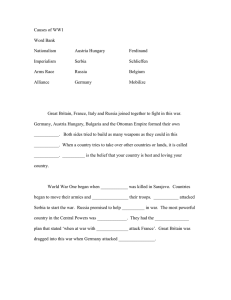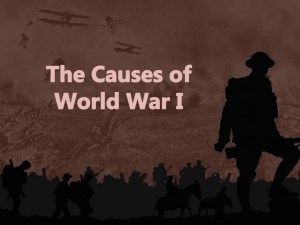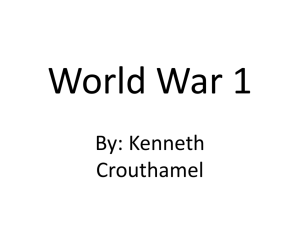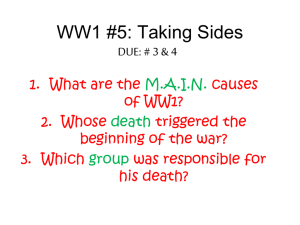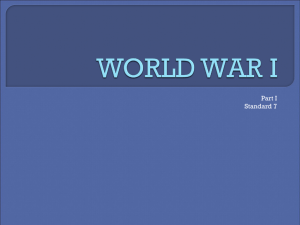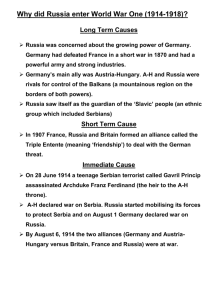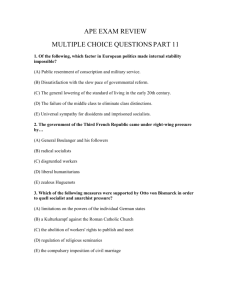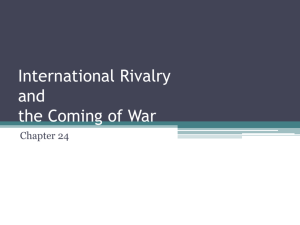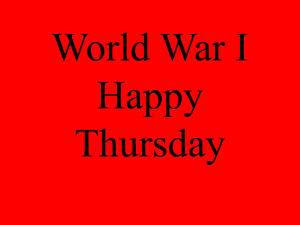WWI Causes: Historians' Perspectives on Responsibility
advertisement
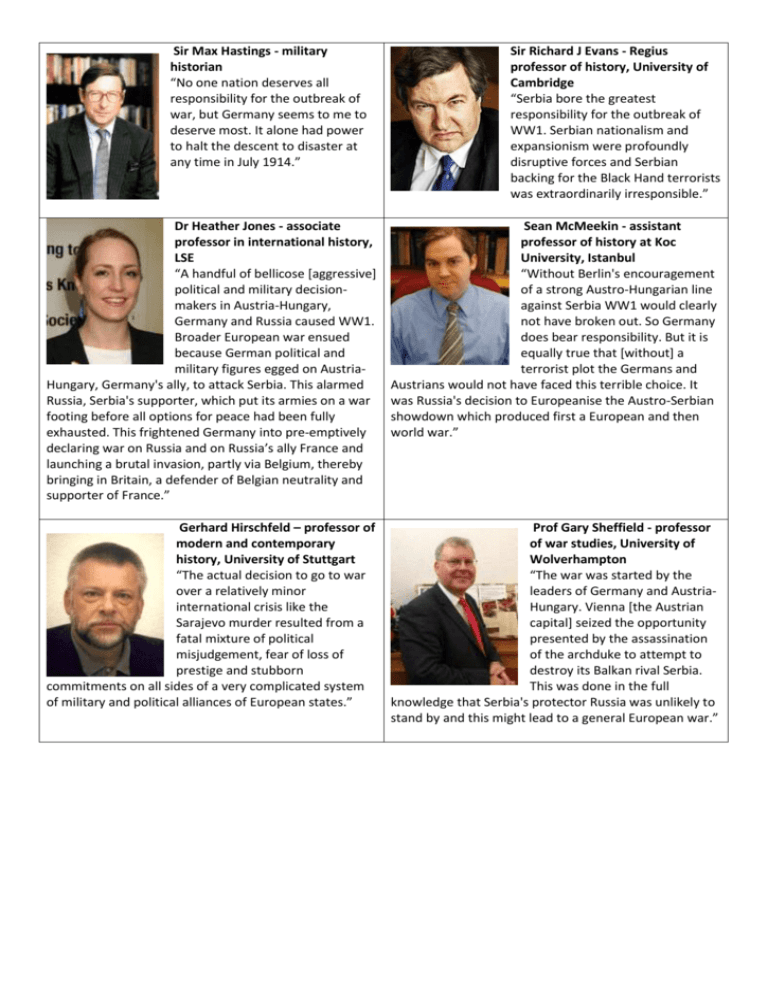
Sir Max Hastings - military historian “No one nation deserves all responsibility for the outbreak of war, but Germany seems to me to deserve most. It alone had power to halt the descent to disaster at any time in July 1914.” Sir Richard J Evans - Regius professor of history, University of Cambridge “Serbia bore the greatest responsibility for the outbreak of WW1. Serbian nationalism and expansionism were profoundly disruptive forces and Serbian backing for the Black Hand terrorists was extraordinarily irresponsible.” Dr Heather Jones - associate professor in international history, LSE “A handful of bellicose [aggressive] political and military decisionmakers in Austria-Hungary, Germany and Russia caused WW1. Broader European war ensued because German political and military figures egged on AustriaHungary, Germany's ally, to attack Serbia. This alarmed Russia, Serbia's supporter, which put its armies on a war footing before all options for peace had been fully exhausted. This frightened Germany into pre-emptively declaring war on Russia and on Russia’s ally France and launching a brutal invasion, partly via Belgium, thereby bringing in Britain, a defender of Belgian neutrality and supporter of France.” Sean McMeekin - assistant professor of history at Koc University, Istanbul “Without Berlin's encouragement of a strong Austro-Hungarian line against Serbia WW1 would clearly not have broken out. So Germany does bear responsibility. But it is equally true that [without] a terrorist plot the Germans and Austrians would not have faced this terrible choice. It was Russia's decision to Europeanise the Austro-Serbian showdown which produced first a European and then world war.” Gerhard Hirschfeld – professor of modern and contemporary history, University of Stuttgart “The actual decision to go to war over a relatively minor international crisis like the Sarajevo murder resulted from a fatal mixture of political misjudgement, fear of loss of prestige and stubborn commitments on all sides of a very complicated system of military and political alliances of European states.” Prof Gary Sheffield - professor of war studies, University of Wolverhampton “The war was started by the leaders of Germany and AustriaHungary. Vienna [the Austrian capital] seized the opportunity presented by the assassination of the archduke to attempt to destroy its Balkan rival Serbia. This was done in the full knowledge that Serbia's protector Russia was unlikely to stand by and this might lead to a general European war.”
